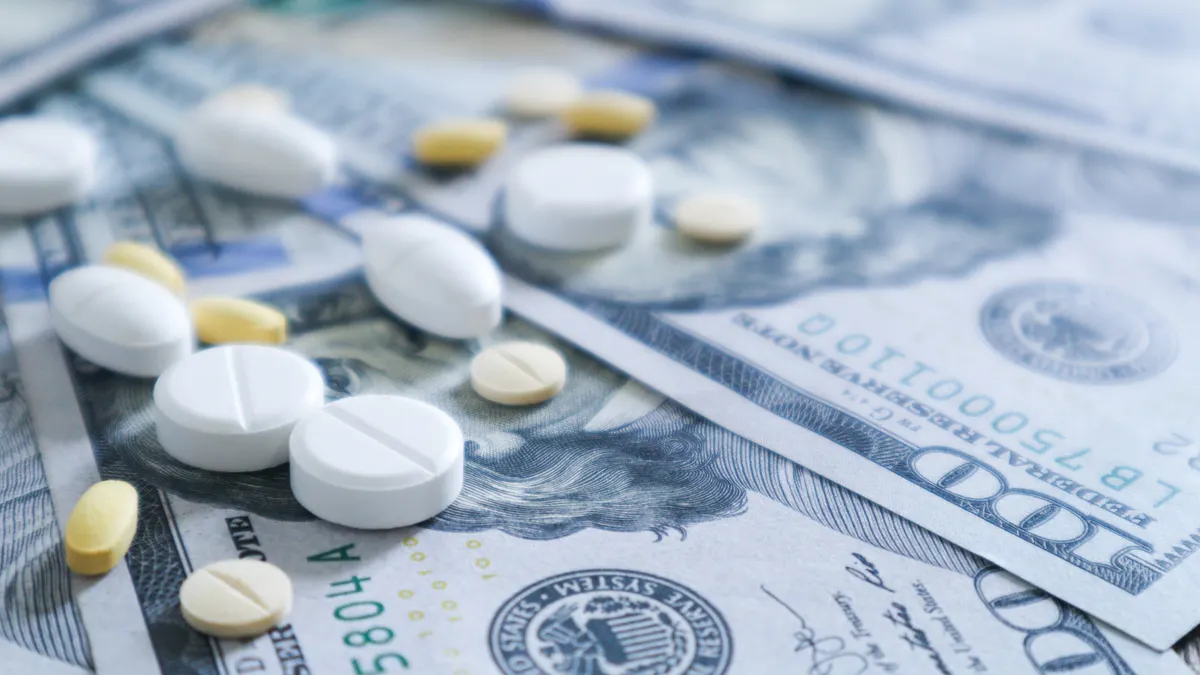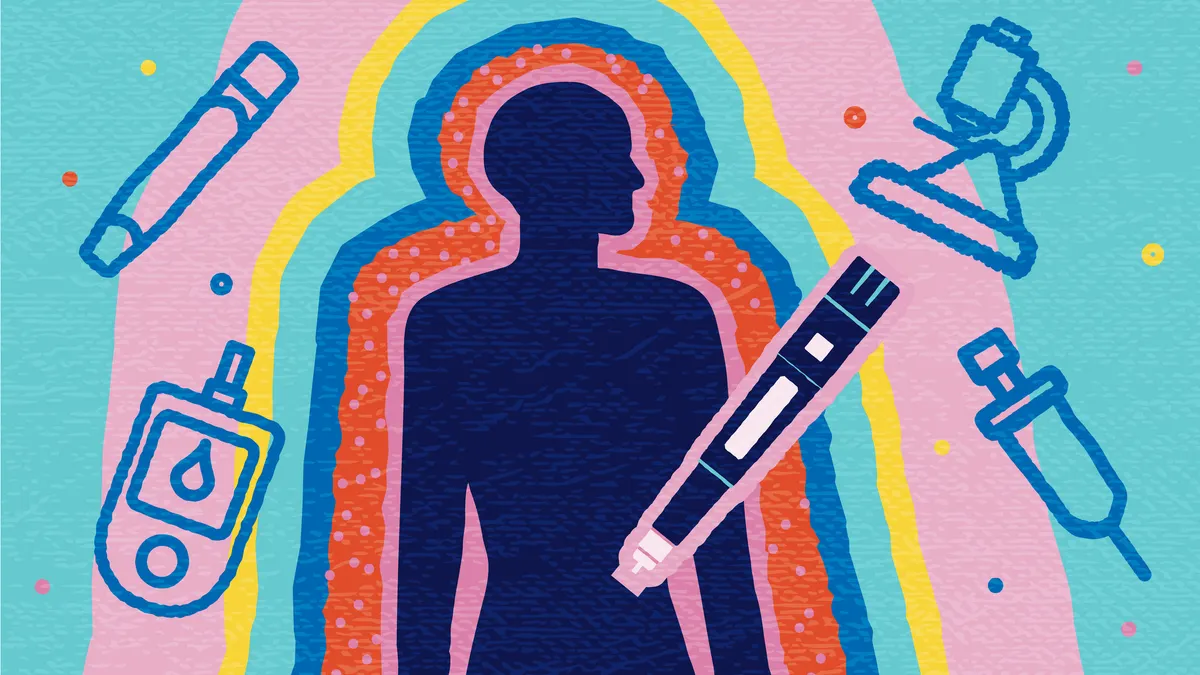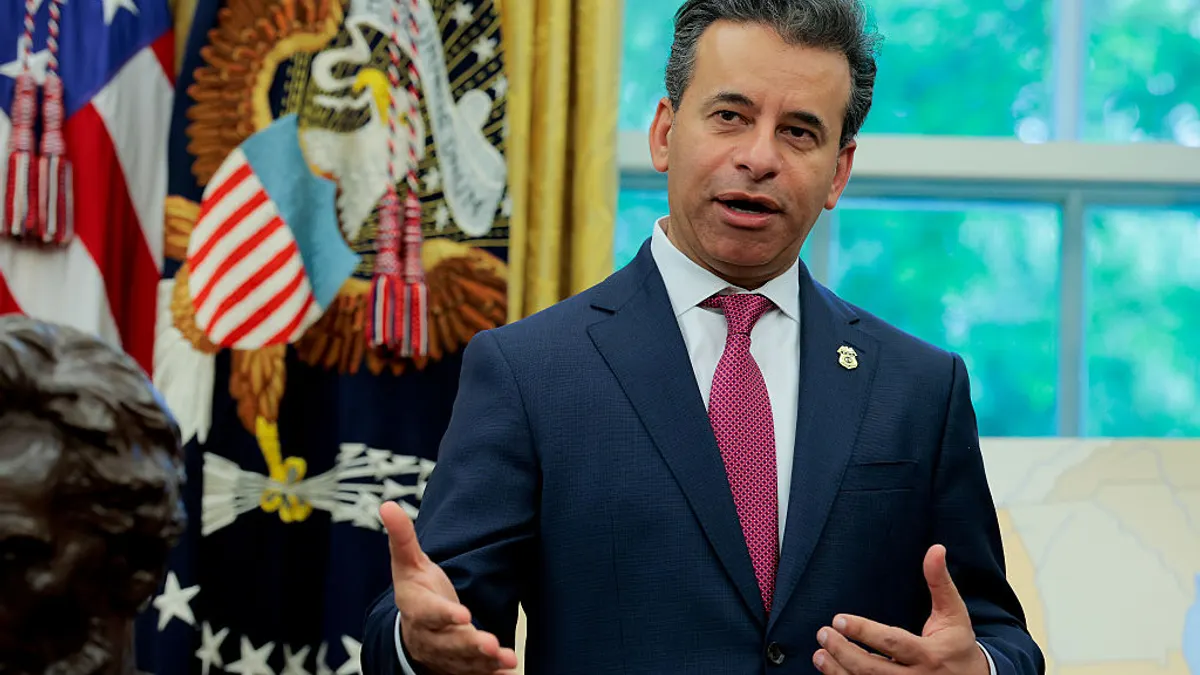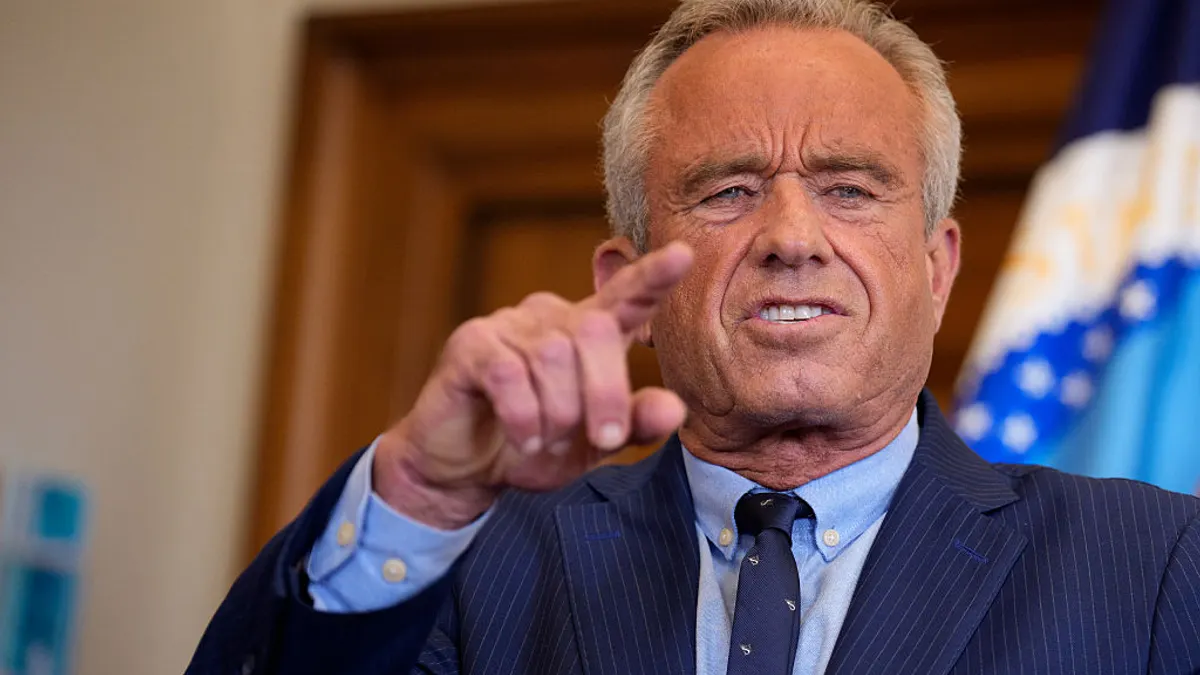The Trump administration unveiled a string of new healthcare policies last week, introducing a pilot program that introduces a major shift in favor of the pharma industry.
After recently being blocked from implementing their own rebate models for the controversial 340B Drug Pricing Program, which provides discounted medications to healthcare centers that serve low-income or uninsured patients, drugmakers will soon have the opportunity to voluntarily participate in a pilot that changes this dynamic. The pilot allows drugmakers to replace the current upfront discounts on certain 340B drugs with rebates instead, the Health Resources & Services Administration, a part of HHS, announced.
Several Big Pharma companies, as well as the industry’s biggest lobbying group PhRMA, have pushed for a rebate model to replace 340B’s discount structure, which critics argue has been abused by some hospitals.
Drugmakers and PhRMA maintain that a rebate system would improve oversight, reduce duplicate discounts and modernize the program.
On the flip side, healthcare industry groups have said a rebate model will harm hospitals by forcing them to cover higher drug prices while they wait to recoup some of their costs.
HHS has so far not allowed drugmakers to implement their own rebate models, even after drugmakers sued the agency last year. Under its own model, HHS is implementing guardrails by limiting the pilot to just the 10 drugs that were selected for the CMS Medicare drug price negotiation program for 2026. The model will help HRSA understand “the merits and shortcomings of the rebate model,” the administration said. And the limited run could expand in the future.
Rebates vs. discounts
Since the 340B program was established in the 1990s, it has grown to include nearly 60% of all hospitals. This expansion has increasingly caught the attention of the pharma industry, which has voiced concerns about abuse in the program and blamed HRSA for not keeping up the pace of oversight.
In particular, drugmakers are worried about duplicate discounts, where a hospital allegedly purchases a drug at the discounted rate but also receives a Medicaid rebate. Rebates instead of discounts, they argue, would erase the problem.
“Under a rebate model, a covered entity would pay for the drug at a higher price upfront and then later receive a post-purchase rebate that reflects the difference between the higher initial price and the 340B price,” the announcement on the federal register reads.
That higher upfront cost could translate to millions of dollars that hospitals are forced to temporarily cover. The average annual “float” by hospitals to pharma companies is estimated to be more than $72 million, according to 340B Health, a nonprofit organization representing 340B hospitals and health systems. The financial impact of waiting for rebates could cripple operations for some providers — 27% of hospitals said waiting a month for rebates could hinder payroll and force layoffs, 340B Health found.
Not only will hospitals have to cover more costs — they’ll face new administrative burdens with a rebate model.
“The pilot model's impact on hospitals and health systems introduces several operational, financial and strategic risks,” said Joel Wright, president, pharmacy services at VytlOne, a pharmacy solutions provider. “Managing rebate claims and reconciling payments adds complexity and risk of denied rebates due to technicalities or eligibility disputes.”
Notably, the pilot requires all rebates to be paid within 10 calendar days of submissions, and hospitals will have 45 days from the date of dispensation to submit and report data for rebates.
And because the pilot covers just 10 drugs in the Medicare drug price negotiation program, rebate lobbyists say it doesn’t go far enough.
“The administration’s rebate pilot is a positive first step toward addressing hospital abuse of the 340B program, but we believe it should cover all medicines and address broader program integrity concerns,” Alex Shriver, senior vice president at PhRMA, told PharmaVoice in an email.
340B Health disagrees and is concerned about the program expanding further.
“While we recognize the agency’s intent to test a limited rebate model tied to IRA implementation, we remain deeply concerned about the financial and administrative burdens the rebate approach will place on 340B hospitals,” said Maureen Teston, president and CEO of 340B Health. “HRSA says it could choose to expand the list of drugs after next year following its evaluation of the pilot program.”
With HRSA’s announcement, eligible drug manufacturers can apply to participate in the voluntary pilot until Sept. 15, with approvals coming by Oct. 15 and going into effect on Jan. 1, 2026. The Office of Pharmacy Affairs will review and accept pilot applications from drugmakers involved in the Medicare drug price negotiation program for 2026.
A public comment period of 30 days is also open on the federal register.
Pharma’s legal fight
A handful of drugmakers attempted to launch their own rebate models last year, which HRSA blocked. Eli Lilly, Bristol Meyers Squibb, Novartis, Sanofi, Kalderos and Johnson & Johnson sued HHS in an effort to push through their rebate models, but district judges upheld the agency’s authority, declaring that HHS has the authority to approve or deny rebate models before they can be effective.
HRSA had several concerns with drugmakers’ rebate models, according to Wright, including a lack of approval, the potential to undermine the program’s safeguards, obscure pricing and eligibility data, as well as complicated enforcement.
While the judges stood with HHS, they did not say such models were prohibited, only that HRSA had to approve them first. The pilot doesn’t suggest outright that drugmakers will be able to implement their own rebate models in the future, but it does give the agency a chance to test a change to the discount structure.
“Limiting the pilot to IRA negotiated drugs represents a strategic trade-off — narrowing the scope from pharmaceutical manufacturers' initial 340B rebate model while enabling the industry to evaluate the model’s effectiveness,” Wright said via email.





















